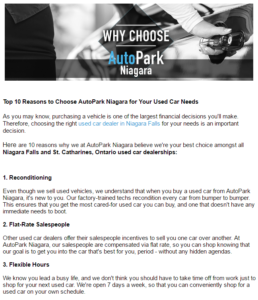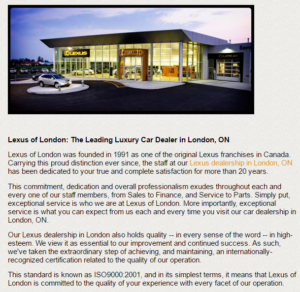
Linguistics Can Improve Your Marketing – Lincoln Digital Group Agency Marketing Services
It’s been said that marketing is equal parts art and science – but it’s also part poetry; part storytelling. When a good marketer creates a message for your potential customers, they’re like an author writing a compelling story, carefully crafting the perfect tone tailored not only to capture interest, but to keep it. In this way, beyond analytics keyword saturation, and clickthroughs, good marketing requires a keen understanding of linguistics. Linguistics is the study of language, and linguistic rules very much apply to marketing messaging. In order to inspire and entice your audience, your marketing agency needs to understand rules like transitivity and conversationalization – terms which we’ll discuss later, but first, let us begin by discussing the importance of establishing a chain of reference.
What is a Chain of Reference?
In linguistics, a chain of reference refers to knowledge that is shared by both the reader and the author. In a novel, it’s what gives it meaning. It’s where subtext, conflict, and drama come from, and it’s also why jokes are funny. For a marketer, developing a chain of reference gives your ad something more than the sum of its parts: it gives your ad, and your brand, meaning.
Consider for example the American Express ads featuring Tina Fey. In this series of ads, Tina Fey is shown, ostensibly as herself, shopping for everything from pet supplies to workout gear. In each, she makes large amounts of impulse purchases, including a pair of “creepy gloves for your feet” fitness footwear which she doesn’t even seem to like. The tone here, however absurd, is one of lighthearted humor, having a little fun with the American consumer’s notorious penchant for impulse buying. Nearly every viewer has swiped a card for an item (or a cart full of items) they know they don’t need, and by having a laugh with us about it, American Express is telling us “It’s okay, go ahead and buy it. American Express is there for you.”

Finding Common Ground with Your Audience
Language, at its core, is a common set of sounds and words that are used to describe something that exists. If something doesn’t exist, or if it can’t be conceptualized, then it can’t have a word. Anytime we communicate, we make some assumptions about our reader or listener, not the least of which is that the speaker and listener share the same language. Beyond this basic assumption, we create the strongest messaging by first identifying (and assuming) common ground – that is, establishing a strong and specific chain of reference.
In marketing terms, this means correctly identifying your audience, and then speaking to them on their own terms. These demographic assumptions are important, because cultural, regional, and educational biases can alter the reaction to your message. In an obvious example, an ad highlighting the challenges of winter weather driving won’t play well in sun-drenched Miami, but the disconnect is sometimes far more subtle, like using technical language in an ad meant to appeal to casual viewers. Understanding the specifics of who your audience is and crafting messaging to speak to them directly is one way Lincoln Digital Group excels.
Making an Emotional Connection
While a chain of reference gives your reader or viewer meaning, transitivity and participant rules create empathy and make an emotional connection. Transitivity in linguistics refers to how to verb relates to the subjects and objects.
For example, in the sentence, “The viper strikes,” something is clearly happening, but it’s difficult to know how to feel about it. However, in the sentence “The viper strikes the little girl,” several new things appear. First, the objective noun “girl” gives the viper’s strike a target, but more specifically, it gives the viper itself a goal – and along with the descriptor “little,” it evokes a much stronger emotional response from the reader. Transitivity, in this way, is powerful, and a transitivity analysis of your marketing will help you to identify these points of emotional connection, enabling you to better connect with your target market.

A Little More Conversation, a Little Less Grammar
Converstationalization is a linguistic idea that refers to adopting informal, common language to establish the tone of an interpersonal relationship. Your marketing “character” can set a formal or informal tone, and that tone carries an implied relationship. Consider Flo and her customers, from the Progressive ads. The characters here are just “regular folks” like the viewer, including Flo, with her rockabilly style and snarky sense of humor. In keeping with their everyman appeal, these characters use very informal language typical of friendly youth culture. In this way, the Progressive brand establishes a less formal, “friendly” relationship with the viewer. Under the context of conversationalization, rules of impeccable grammar are less important than authenticity.
On the other hand, a company like Cartier will likely prefer to employ formalization; that is, stick to formal, grammatically correct, almost ethereal language to best characterize their brand. This tone isn’t conversational, casual, or friendly; it is authoritative and almost mythical.
Whether your brand’s voice needs to be friendly or formal, as experts in marketing, we’re also experts in linguistics. Whether your target audience is a slacker teen or a CEO, Lincoln Digital Group is here to help your brand find its perfect voice.

